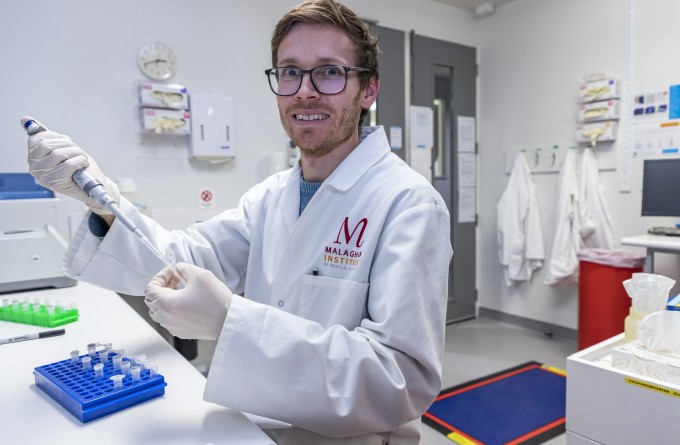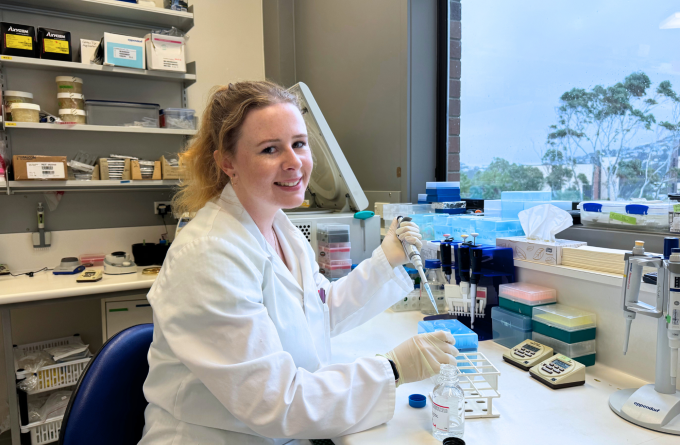24 June 2024
An imbalance of lipids in the skin may be a contributing factor to psoriasis according to a collaboration between the Malaghan Institute and Seoul National University. The findings offer vital clues in understanding the complex relationship between the skin, the immune cells that call it home, and our health.

Dr Oliver Lamiable (left), Professor Franca Ronchese, Dr Sou Ochiai.
“Led by our collaborator Professor Yeonseok Chung from Seoul National University, we investigated the intricate relationship between the skin-residing immune cell populations, their mediators, and lipid metabolism during psoriasis, a chronic inflammatory skin disorder, affecting 125 million people world-wide,” says Malaghan Institute research fellow Dr Sou Ochiai.
“Lipids are compounds derived from fats and oils, important for storing energy and forming cell membranes in the body. Our study revealed the disruption in lipid metabolism within psoriatic skin compared to healthy skin. Interestingly, we found this lipid imbalance and disease severity were more pronounced in the absence of the chemical signalling molecule IL-13, a key mediator always produced in healthy skin and strongly upregulated during allergic conditions.”
The skin is the first line of defence against the many allergens and harmful microorganisms we encounter on a daily basis. The immune cells that live in the skin are vital for maintaining the integrity and function of the skin, and play a central role if things go awry – as is the case with allergic and inflammatory conditions. Understanding why these conditions happen, and how we can potentially stop them, is key to developing new treatments or preventing it from happening in the first place.
Previous work from the Malaghan Institute showed skin-resident immune cells also play a much larger role throughout the body, likening the skin to a ‘ground zero’ for the development of these life-long and often debilitating allergic and inflammatory conditions. This recent research, published in Cell Reports, expands on this, demonstrating how reduced IL-13 can lead to lipid imbalance and compromise the integrity of the skin as well as its ability to control inflammation.
“Lipids play a crucial role in maintaining the function and integrity of the skin barrier,” says Dr Ochiai. “Disruptions in lipid homeostasis can compromise the skin barrier, making it more susceptible to infections and increasing the likelihood of conditions such as atopic dermatitis and psoriasis. In addition to their role in physical barrier functions, lipid-derived mediators can also regulate the immune system.
Dr Ochiai says there is strong evidence that the skin is the initial site where allergens come in contact before triggering allergic inflammation, in not only skin but also in the lungs and gut.
“Understanding the skin’s immune responses is essential for treating allergic reactions and other inflammatory diseases. This research highlights the broad impact of immune cells and their products on normal skin function, and offers new avenues for developing treatments for skin diseases that could be translated into clinical interventions.”
Related articles

Malaghan Institute and Victoria University ‘renew vows’ after 21 years of partnership
22 January 2025

Fighting allergic skin disease at its root
17 December 2024

Fighting allergic skin disease at its root
17 December 2024

RNZ Our Changing World: Targeting bacteria, and health inequities
4 July 2024

New research deepening understanding of elusive eosinophils
27 June 2024

The ever-evolving world of immunology research
13 June 2024
